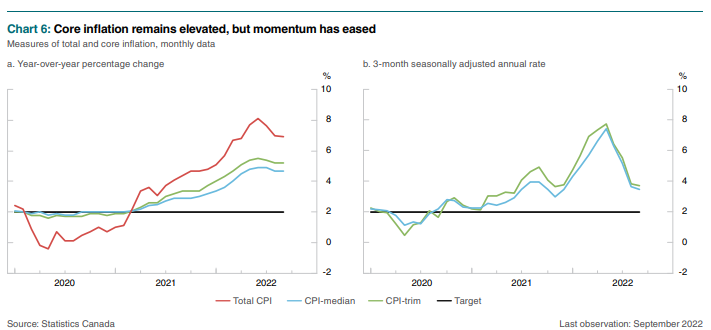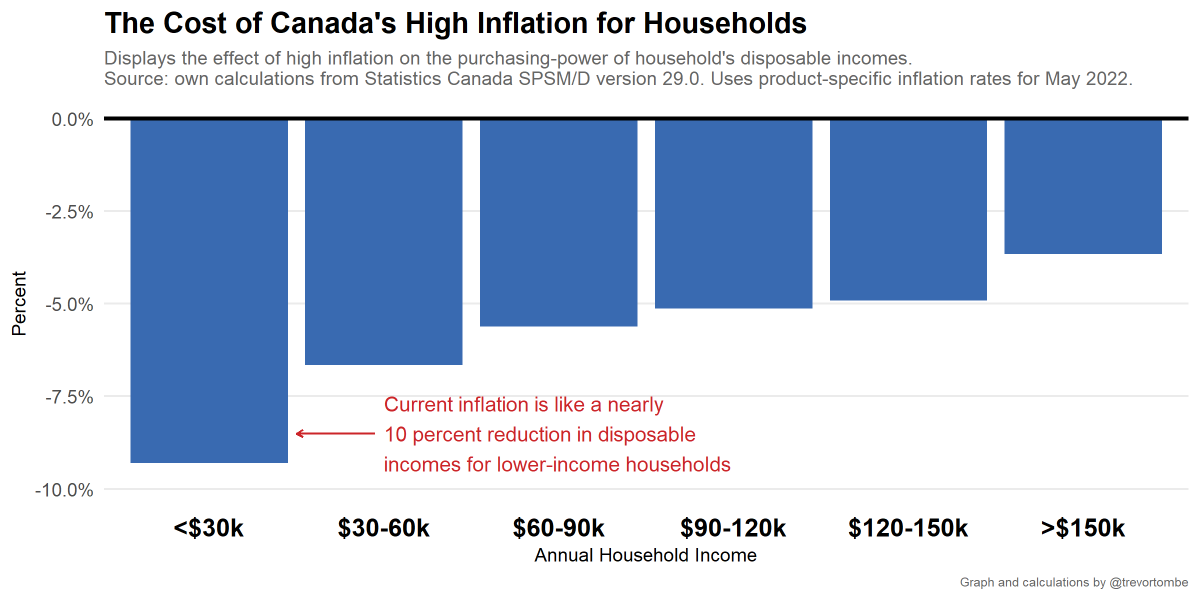
Why is the Bank of Canada owned by the government? Because Alberta Premier William Aberhart invaded Saskatchewan.
A nerdy thread about the Bank and Bible Bill for #cdnecon, #ableg, and #cdnpoli. 🤓🧵
A nerdy thread about the Bank and Bible Bill for #cdnecon, #ableg, and #cdnpoli. 🤓🧵
First, some background. The Bank of Canada was established in 1934 and began operations in early 1935. (Brief history here: bankofcanada.ca/about/our-hist…)
But it was a fully private entity, with roughly 12k shareholders across the country. Government owned no shares.
But it was a fully private entity, with roughly 12k shareholders across the country. Government owned no shares.

The govt had influence, to be clear. Govt appointed the first Governor + the Governor could veto any board decision.
And dividends to shareholders were capped at 4.5%. All excess went to the government. So, it wasn't really a profit maximizing corporation in the normal sense.
And dividends to shareholders were capped at 4.5%. All excess went to the government. So, it wasn't really a profit maximizing corporation in the normal sense.
But some didn't like this arrangement.
W.L. Mackenzie King (the oppo leader at the time, later PM) said: "in no sense should the bank be a banker's bank; it ought to be a govt bank". parl.canadiana.ca/view/oop.debat…
W.L. Mackenzie King (the oppo leader at the time, later PM) said: "in no sense should the bank be a banker's bank; it ought to be a govt bank". parl.canadiana.ca/view/oop.debat…
It became an election issue in 1935. Here's an excerpt from the King's Liberal platform (as expressed in an extended article in Macleans: archive.macleans.ca/article/1935/9…)
Strong language: "The Bank of Canada is ... of the Fascist type" 😮
Strong language: "The Bank of Canada is ... of the Fascist type" 😮

Part of their concern was realized in the first BoC Board elections. The Canadian Chamber of Commerce ran a slate and won all the seats. This was an "intolerable situation", finance minister Dunning later said:
https://twitter.com/trevortombe/status/1600644468675575808?s=20&t=lLFopl9hMXVr3UIZyU6Nsw
Quick aside: some were thankful that the Chamber took this initiative. The first board election could very likely have been a gong show otherwise.
Anyhow, the Liberals won the election. And in 1936 moved towards 'government control' rather than nationalization. They did two big things: (1) issued new BoC shares that only govt could buy, giving them 50.5% and therefore control; (2) creating new govt appt'd directors.
Social Credit was based on a pretty fringe monetary theory: en.wikipedia.org/wiki/Social_cr…
In Alberta, Aberhart basically wanted to increase the money supply: en.wikipedia.org/wiki/Social_Cr…
In 1936 and 1937, he tried various Social Credit Acts, introduced Prosperity Certificates, and more.
In Alberta, Aberhart basically wanted to increase the money supply: en.wikipedia.org/wiki/Social_Cr…
In 1936 and 1937, he tried various Social Credit Acts, introduced Prosperity Certificates, and more.

Those Acts were (obviously) outside of a province's power to enact. The federal government disallowed some. The provincial LG reserved others. And the Supreme Court of Canada sided unanimously with the Feds: canlii.org/en/ca/scc/doc/…
Big fights. Fun times.
Big fights. Fun times.

So Aberhart decides to go beyond Alberta to force the fed's hand. And a mere ten days after the SCC ruling, he announces he'll take over Saskatchewan! All with Aberhart-chosen candidates.
See this great @davecournoyer piece: daveberta.ca/2016/11/brad-w…
MB and BC were later targets.
See this great @davecournoyer piece: daveberta.ca/2016/11/brad-w…
MB and BC were later targets.
PM King took this threat seriously. Writing later in his diary: "To defeat Aberhart solidly in Saskatchewan ... would do more to steady the whole of Canada than anything that has happened since our general election." (8 Jun 1938) 

Interestingly, two weeks after Aberhart announces, PM King gets cabinet to agree on nationalizing the Bank. Timing TBD. The finance minister was opposed. We know this today from King's diaries!
Previous Social Credit gains was a factor.
Previous Social Credit gains was a factor.

Explaining the decision to the BoC Governor (who opposed nationalization), King told him clearly that the move was to help "save" the BoC from "public attack and pressure". The PM didn't personally want a change, but felt he had to.
We know this from the King diaries too!
We know this from the King diaries too!
These diaries are an amazing resource, btw: …erche-collection-search.bac-lac.gc.ca/eng/Home/Searc…
King once had a dream that he himself became the Bank of Canada Governor. Everyone in the dream thought that was great. And while Governor, he drew circles with lines in them. 🤨
(April 5, 1938)
King once had a dream that he himself became the Bank of Canada Governor. Everyone in the dream thought that was great. And while Governor, he drew circles with lines in them. 🤨
(April 5, 1938)
Ok, back to the story. Nationalizing the Bank was a surprise to cabinet. And when announced in May it was a surprise to everyone else too. The SK election in June 1938 was immediately suspected because of the timing.
Here's the Windsor Daily Star (May 28, 1938).
Here's the Windsor Daily Star (May 28, 1938).

What was the govt's concern? Well the socreds were relentless in their attacks against banks and demands to increase the money supply. Aberhart actively campaigned throughout SK with calls to Turn the Crank! (i.e., print money).
Leader-Post, May 31, 1938:
Leader-Post, May 31, 1938:

Manning (later AB Premier, and top Aberhart lieutenant who ran the show in SK) said throughout that the "ultimate object of the Social Credit Party is to gain **public control** of money and credit" (emphasis added).
Manning: "society is suffering from a chronic shortage of purchasing power ... the financial system, with its monopoly of credit, are directly responsible". Blaming the depression on "the restriction and manipulation of money by the financial monopolists" (EdmJrnl, Mar 14, 1938)
The massive Socred campaign (in part paid by AB govt too, it seems!) drew huge crowds and media and drove the SK Liberals, CCF, Cons "close to panic" -- source: muse.jhu.edu/article/674823…
The King nationalization announcement was seen to allow the Liberals to counter Socred claims.
The King nationalization announcement was seen to allow the Liberals to counter Socred claims.
It was all pretty obvious. Former PM Meighen (who, fun fact, was later appointed to the Senate and was involved in the nationalization debate) said the bill should be called "An Act to Win the SK Provincial Election"!
Senate Hansard, June 29, 1938:
Senate Hansard, June 29, 1938:

The govt never explicitly said it was about SK. The finance minister introducing the Bill to nationalize the BoC said it was to end the "political controversy". And they hoped it would "dispose once and for all of political discussion relating to the constitution of the bank".
They didn't think the move mattered in any real sense at all except for the public perception, and to squash claims that the supply of money and credit was controlled by a cabal of financiers rather than the government.
To be clear: so many other things mattered for the SK 1938 election, which Liberals won handily. It was called soon after Aberhart announced his invasion, and SC couldn't get organized. But Aberhart and the SK election seems to be the key factor behind the nationalization.
It's a really fascinating part of the Bank of Canada's history. Perhaps unique in the world, the Bank moved from a new private central bank, to a public-private mix, to a fully public one in less than 4 years after inception!
Plus it's a fun story! Still relevant today.
/fin
Plus it's a fun story! Still relevant today.
/fin
• • •
Missing some Tweet in this thread? You can try to
force a refresh
















